We are thrilled to welcome to the blog Maisie Chan, who won the 2022 Branford Boase Award for outstanding debut novel for children with her book Danny Chung Does Not Do Maths.
Maisie’s comic, family story Danny Chung Does Not Do Maths is about an 11-year-old whose life is turned upside down by his growing friendship with his grandmother, newly arrived from China. The award is shared with Chan’s editor, Georgia Murray, of Piccadilly Press. Many of you will also recognise the book from our Best books for Year 5 booklist.
Maisie visited our blog this week to explain why intergenerational relationships are so often at the heart of her books…
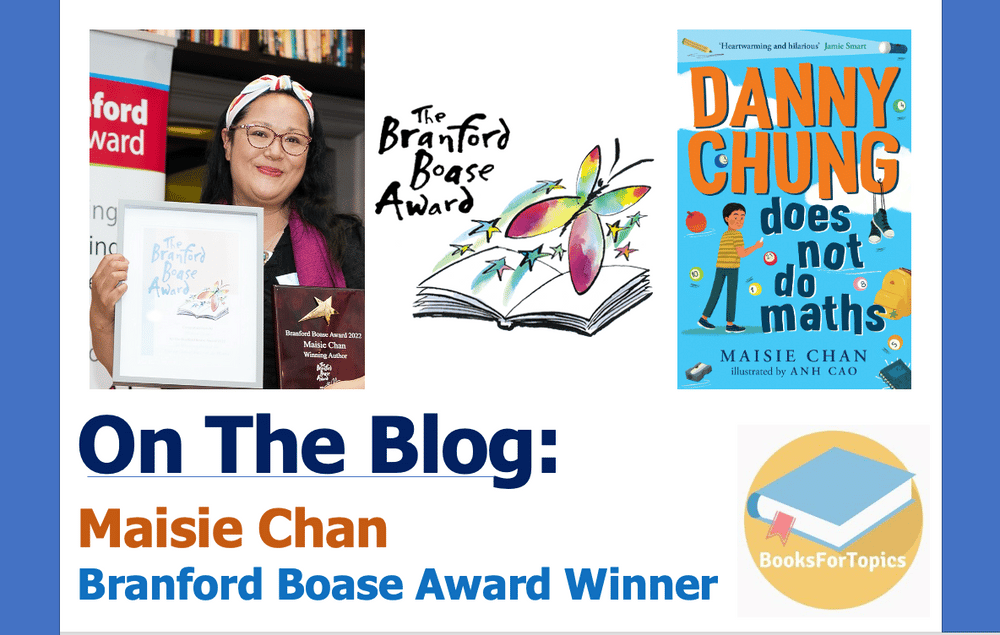
Guest Post – Why I love writing about intergenerational relationships
by Maisie Chan, author of Danny Chung Does Not Do Maths and winner of the 2022 Branford Boase Award
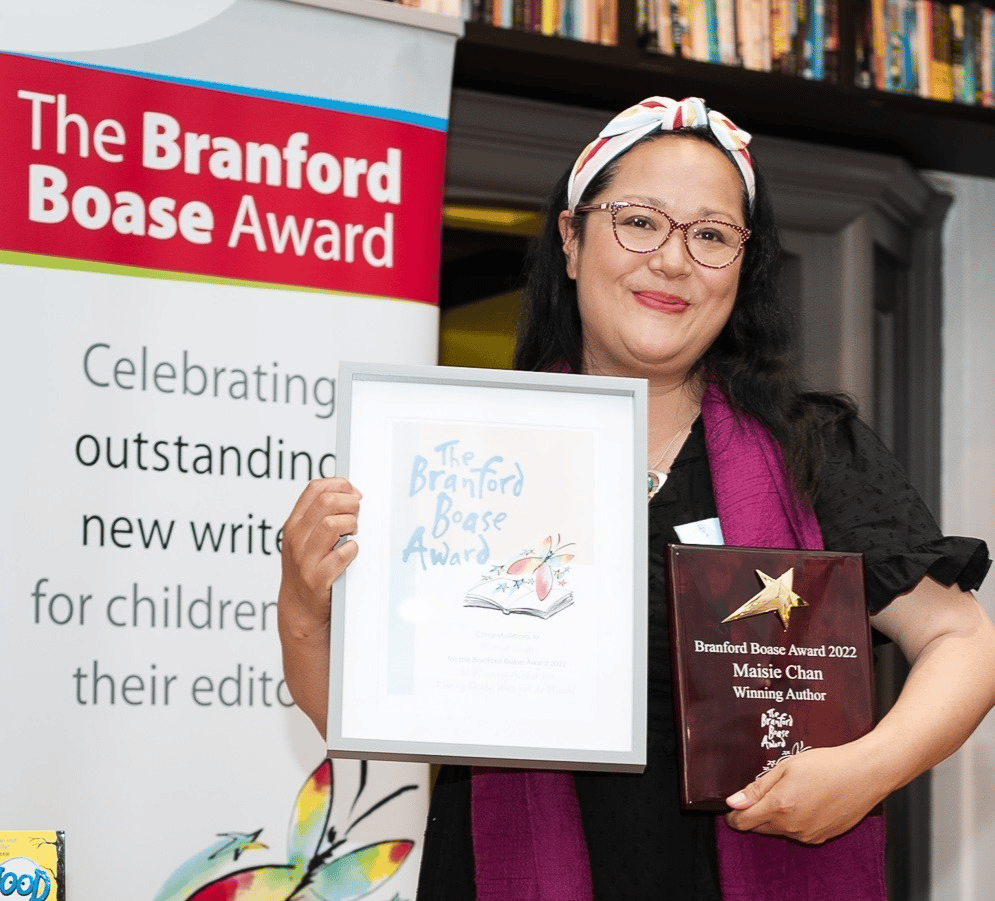
Grandparent and grandchild relationships feature in many of my stories. Indeed, in Danny Chung Does Not Do Maths the plot revolves around Danny meeting his Chinese grandmother for the first time and the book explores the feelings he has about this new relationship, though it’s also about the friendship between the generations.
Nai Nai (maternal grandmother in Mandarin Chinese) is often the reader’s favourite character. She doesn’t speak English in the book and is very over-physical with Danny, showering him with love, wanting to feed him up; she takes up a lot of space in his world. At first, he’s not very happy about it, but later he realises they can help each other, that she is there for him, and perhaps he can be there for her too. I wanted to write about this intergenerational relationship as it is a tool for examining newly arrived immigrants, how they are treated, and how they cope.
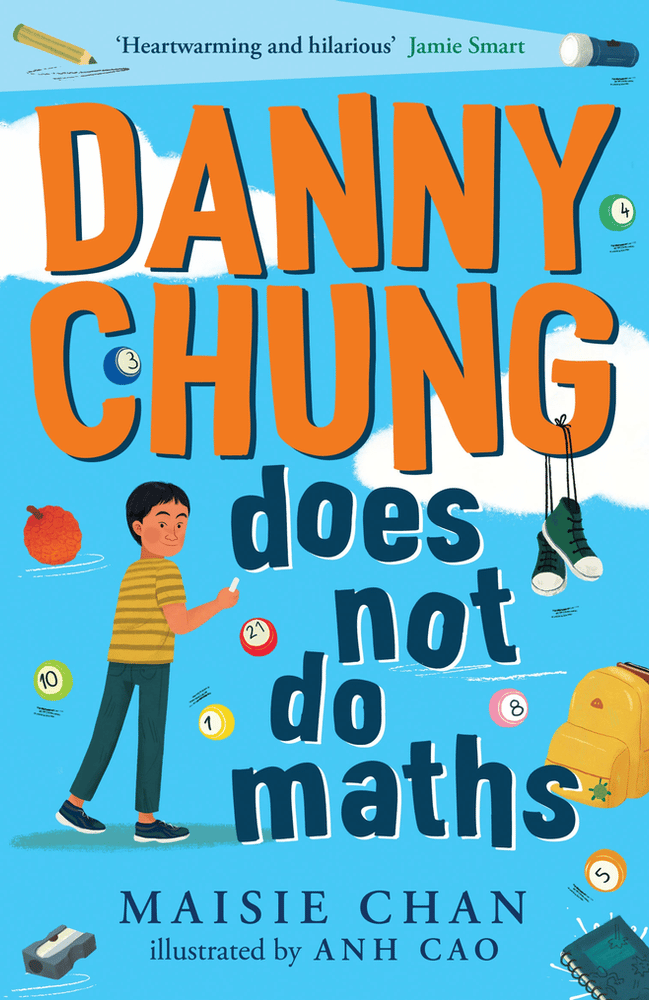
It shows that you can be friends with someone who is not from your generation and that you can learn from each other. There are a lot of older people in the story, at the bingo hall Nai Nai visits for example, and Mrs Cruickshanks, another important character, is retired and a bit lonely. There is an element of comedy in the miscommunication that can happen between the generations, especially if you add a grandparent from a different country to the mix.
I spent a lot of time visiting my dad (who was much older than me) in a sheltered flat for old people and later in a nursing home. I saw how lonely older people can get, especially when their family don’t come and visit or if they no longer have any friends. I also saw how there was an inner child there too. My dad often talked about his time as a boy, those were his fondest memories, even though he lived through World War II. I met lots of different kinds of older people, some were stuck in their ways, some would talk to anybody, and some were just very kind, wanting to share their sweets, or just chat to you about anything.
I based Nai Nai too on my friend’s gran, who came to live with her in Birmingham from China, aged 92-years-old. She’s also inspired by me meeting my Chinese grandmother in my late twenties and having to learn how to communicate with her.
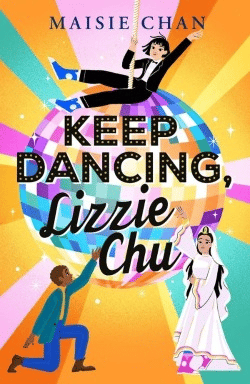
My second novel, Keep Dancing, Lizzie Chu also has the relationship between an older person and a young person at its heart. Lizzie is a young carer for her grandad who is a widower and he’s started acting a little strangely. They have a very special bond and as the book opens, Lizzie saves his life from an eco-bus which is about to knock his head off! They share a love of Strictly Come Dancing, and the book revolves around Lizzie wanting to take him on the road trip of his life (to make him feel happy again), but how is a twelve-year-old supposed to organise that with no money and no car?
The book also features stories about the deity Guan Yin. She is Wai Gong’s (which means ‘grandfather’ in Mandarin Chinese) most beloved goddess, the one he talks to all the time, and is the goddess of compassion and mercy. The stories between grandfather and granddaughter are a way to pass on links to the past. By the end of the book, Lizzie has learned all of Wai Gong’s stories and is able to tell him one. The roles are reversed and Lizzie is the one who is going to carry on the family traditions.
There are two other stories where I’ve written about cool grandparents. In the Tiger Warrior series for younger readers, Jack has a close relationship with his slightly mischievous grandpa who tells him that he is the magical Tiger Warrior who must protect a mythical kingdom full of frightening creatures such as the Dragon King. Although Ye Ye (Jack’s grandpa) doesn’t appear a lot in the books, their relationship is very special.




And finally, in my story ‘It Takes a Thief’ in The Very Merry Murder Club, Alma’s cat burglar mum gets kidnapped, and Alma and Nanna So-Kim must go find her and solve the mystery. Nanna likes to tickle bad guys with her knitting needles!
So there you have it, a rundown of all the intergenerational relationships in my work. Will I write more grandparents in my books? I can’t possibly say!
————–
You can purchase Danny Chung Does Not Do Maths online from Amazon or BookShop.Org.
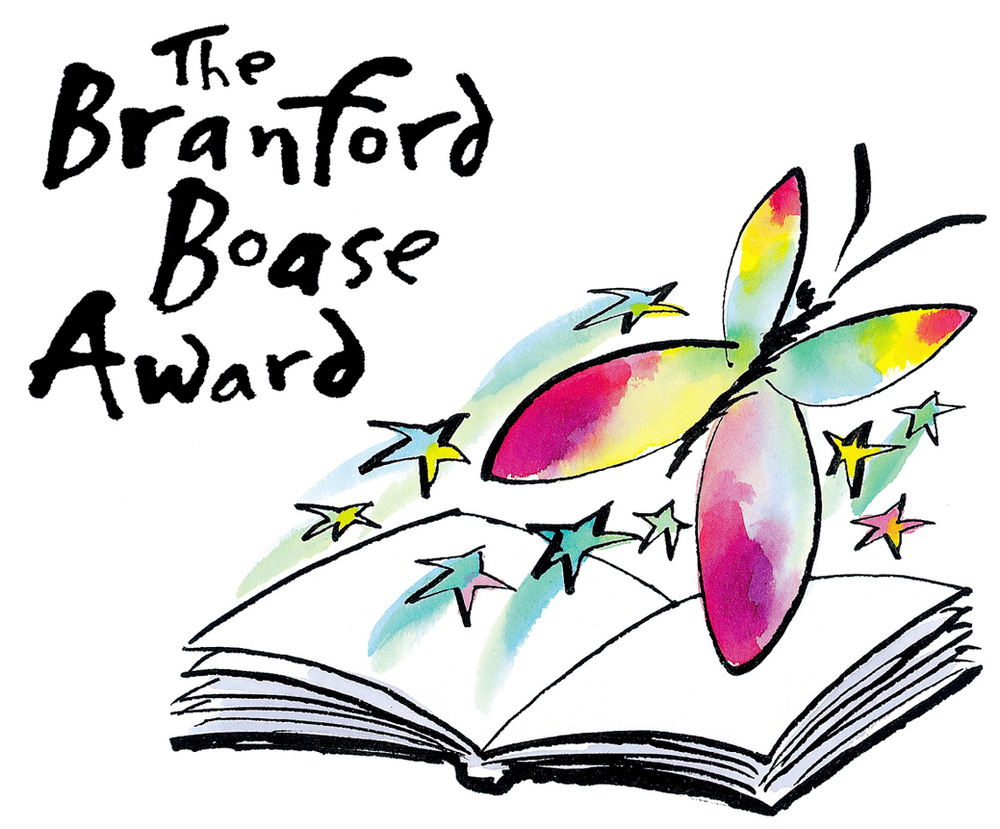
The Branford Boase Award is a children’s book award celebrating the most promising book for children aged 7+. The award is only for children’s books written by a first-time novelist and also highlights the importance of the editor in the development of debut authors.
Find out more about this year’s award here.
———————
Where next?
> Visit our Reading for Pleasure Hub
> Browse our Topic Booklists
> View our printable year group booklists.
> See our Books of the Month.








